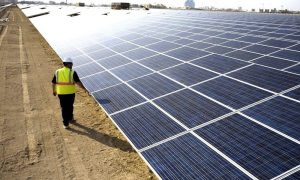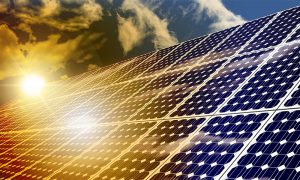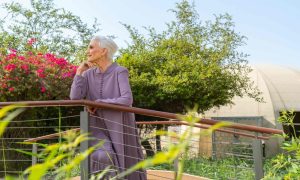UAE begins construction of $50mn Caribbean Energy Projects
The combined output of the solar power plants will be 2.35MW

The UAE Ministry of Foreign Affairs and International Cooperation (MOFAIC) has announced that the UAE-Caribbean Renewable Energy Fund (UAE-CREF) have broken ground in the Bahamas, Barbados, and Saint Vincent and the Grenadines to build renewable energy projects.
The first three energy projects cost just under $ 50 million and is financed by the Abu Dhabi Fund for Development (ADFD) and is the largest renewable energy initiative of its kind in the Caribbean representing a partnership with MOFAIC, ADFD and Masdar.
In the Bahamas, this project will be the country’s first large-scale solar energy project and will set a regulatory precedent for new renewable energy plants to feed into the grid. The 900 kW solar PV at the national stadium will also serve as a carport with electric vehicle (EV) charging station.
In Barbados, a 350 kW solar PV carport with EV charging stations and a 500 kW ground mounted PV plant will be the two elements of the project. It is being built in partnership with the Barbados Water Authority.
In Saint Vincent and the Grenadines, the project is under construction at the Union Island. The 600 kW solar PV plant is connected to a 500 kWh lithium-ion battery and is expected to supply all of the island’s daytime power needs. Currently, Union Island’s energy costs are almost 50 % higher than that of the main island of Saint Vincent.
Reem Al Hashimy, UAE Minister of State for International Cooperation, said: “These renewable energy projects underway in the Bahamas, Barbados, and St Vincent and the Grenadines further make the business case for sustainable development and UAE-Caribbean cooperation. They will create jobs and reduce energy costs to stimulate the local economy, while also incorporating concrete measures to address the reality of climate and hurricane risk.”
Mohammed Saif Al Suwaidi, director general of the ADFD, said: “In cooperation with MOFAIC and Masdar, ADFD is proud to witness the rapid pace of development in three of the four country recipients of cycle one of the UAE-CREF.”
“The UAE-CREF supports sustainable economic and social development across the Caribbean through helping countries to maximize their vast natural potential for resilient, commercially viable renewable energy.”
“Through strategically partnering with Small Island Developing States, a group of small island countries that share similar development challenges, ADFD will help them achieve sustainable energy solutions that enhance their climate resilience and the economic prospects of the local communities,” Al Suwaidi added.
As per the statement from Masdar, the project will achieve diesel savings of more than 895,000 litres per year while displacing more than 2.6 million tonnes of CO2 annually. This will represent an annual fuel saving of at least $1.1 million.
Mohamed Jameel Al Rahami, CEO of Masdar said: “Masdar is proud to be working alongside the Ministry of Foreign Affairs and International Cooperation and the Abu Dhabi Fund for Development in the implementation of the UAE-Caribbean Renewable Energy Fund programme, building on the success of a similar collaboration in the Pacific Islands whose 11 projects continue to benefit local communities today,”.
“The projects being delivered through the Fund will be engineered to meet the specific needs of each host country and make an important contribution to the emergence of a commercially viable renewables sector in the Caribbean and the Latin America region.”
“As a global renewable energy company active in more than 20 countries, with projects ranging from utility-scale power plants to off-grid and remote-area installations, Masdar is honoured to leverage its experience and expertise in collaboration with those of its partners in the UAE-Caribbean Renewable Energy Fund,” Al Rahami added.
According to the statement from Masdar, The UAE-CREF aims to deploy renewable energy projects in 16 Caribbean countries over the next three years to help reduce reliance on fossil fuel imports, stimulate economic activity and enhance climate change resilience.
























